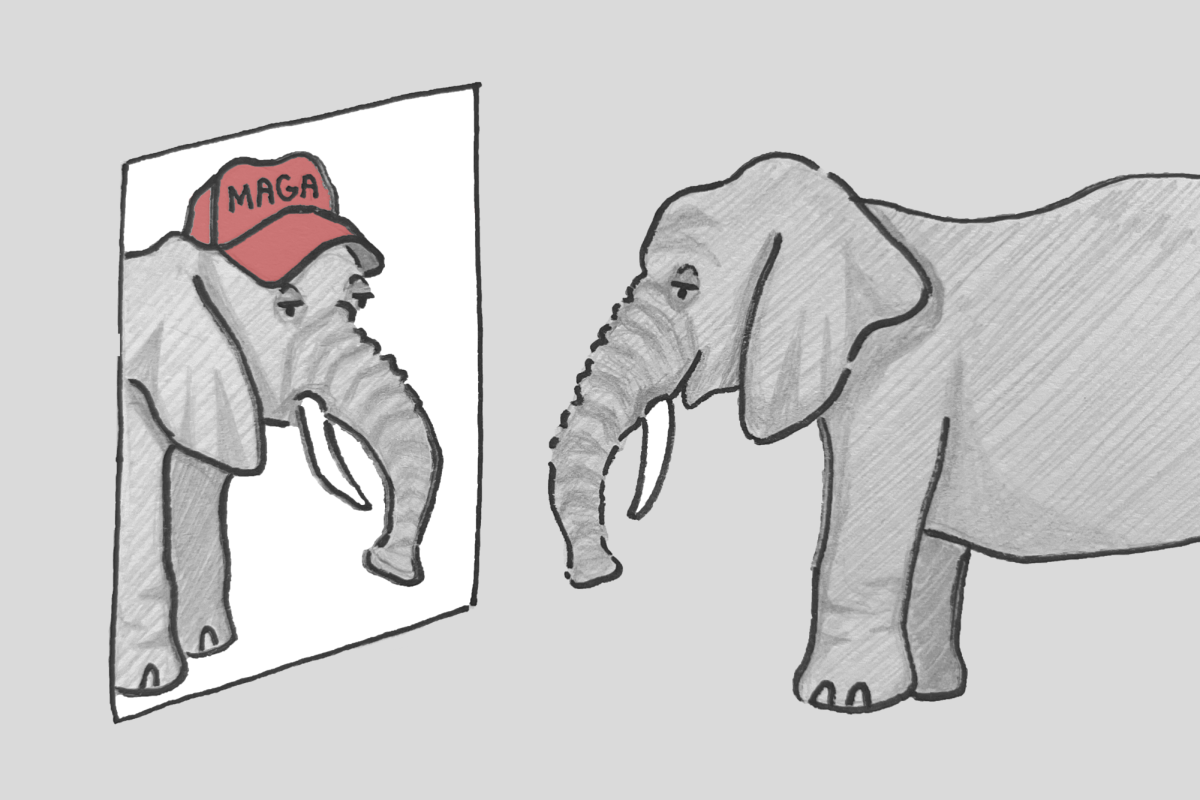Republicans have historically touted a hands-off approach to governance, but the Trump administration’s second term has gone awry. Characterized by decree-style leadership of expansive presidential power, elitism, and oligarchical approaches, the current administration marks a stark departure from the party’s traditional embrace of a weak executive branch. Such a realignment dangerously mirrors key authoritarian principles — a strongman leader, power centralized in the executive branch, and undermining democratic processes in favor of nationalism, devout loyalty, and coercion.
Take the Republican Party’s departure from free trade, for example. President Donald Trump’s recent implementation of tariffs has disrupted American conservative ideology that has persisted for decades. Although Trump campaigned on promises to reduce inflation, increase national wealth, and “make America affordable again,” his stunning enforcement of this interventionist tariff policy has only triggered economic instability. Rather than strengthening the national economy, these measures have worsened market volatility, with the Dow Jones Industrial Average plummeting, prices rising, and uncertainty encapsulating both domestic and international economies. Trump’s isolationist economics not only risk global economic instability, but they also reflect the nationalistic tendencies characteristic of authoritarian regimes.
The radicalized Republican stance on immigration reflects another significant shift in the party’s agenda. Although the GOP has historically advocated for stricter immigration policies and border control, its policies typically included pathways to legal status.
For example, the Bush administration advocated for immigration reform that created pathways to citizenship for migrants seeking legal status in the United States. Bills like S.B. 1348 — the Comprehensive Immigration Reform Act — prescribed enhanced border control while creating avenues to obtain legal status for undocumented migrants. Although the bill never passed the Senate, it was strongly endorsed by the Republican Bush administration.
In contrast, on his first day in office, Trump upended the immigration system by declaring a national emergency at the southern border, suspending refugee admissions into the U.S., revoking student visas, and deporting documented migrants across the country. These executive actions are indicative of a stark departure from the conservative agenda of years past — such as that under the Bush administration — and they collectively erode due process protections and suggest a troubling turn toward authoritarian governance by the so-called leader of the free world.
The second Trump administration has, thus far, induced a significant expansion of executive authority. Sweeping executive orders and the complacency of congressional Republicans in the face of Trump’s disregard for checks on presidential power reflect the GOP’s favorable attitude toward an assertive executive. Trump’s slashing of federal funding — money appropriated by Congress, not within the executive’s enumerated powers to alter — for social support programs is a blatant overstep of presidential authority. Beyond the vast material consequences for beneficiaries, this move reflects a willingness within the Republican Party to tolerate, and even endorse, executive overreach. Historically, the GOP has positioned itself as a defender of constitutional precedent and tradition. Today, however, the party seems willing to overlook such violations, indicating a deeper shift in its stance on the limitations of presidential power.
The transformation of the Republican Party under Trump also extends far beyond a mere shift in policy preferences; it indicates a fundamental redefinition of the party’s political identity. Pillars that once defined the GOP — small government, constitutional restraint, and free-market capitalism — now stand in stark contrast to its embrace of executive overreach and isolationist economics. This realignment calls for a critical evaluation of what the Republican Party stands for and the future of American conservatism in a post-Trump era.










